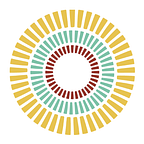TRINIDAD & TOBAGO: We All Shed Tears Over Violence Against Women
Elizabeth Francis sees a striking contrast between the Caribbean’s idyllic island life and rising rates of gender-based violence. She dreams of creating a healing space to give survivors a fresh start.
“We have marched, we have stood with candles and cried, we have raised our voices, and we have advocated for change. We have put systems in place, hotlines upon hotlines, but still, it’s not a lifeline in the moment.”
by Elizabeth Francis
I live on a beautiful tiny island in the Caribbean. Trinidad and Tobago is known for its rich multi-ethnic culture, a world-renowned carnival filled with elaborate costumes and exuberant celebrations, and the only acoustic musical instrument created in the 20th century: the steel drum. We are known for our beautiful, sun-kissed beaches, tasty street food, and natural rainforest.
But lately, we are also known for an ever-increasing rise in domestic violence against women. In fact, 2020 was one of the most violent years on record: 46 women were killed, 21 of them at the hands of men they loved. The total number of reported domestic violence cases was 556.
For a country with a population of only 1.4 million, it is a worrying figure. The increase in cases has coincided with the pandemic, with more families at home together for an extended period due to lockdown measures.
We have marched, we have stood with candles and cried, we have raised our voices, and we have advocated for change. We have put systems in place, hotlines upon hotlines, but still, it’s not a lifeline in the moment.
We have questioned why, wondering where we have gone wrong. Women in our country are not alone. The World Health Organization says 1 in every 3 women globally has experienced physical or sexual abuse. That’s a startling reality.
Perpetrators’ misbehavior is chalked up to countless excuses and studies. But survivors face staggering health consequences and endure social and economic costs. Violence against women impacts the lives of children, families, and communities as a whole.
It pains us when a sister’s light is snuffed out, whether at the hands of one she loves or a stranger who has violated her right to life. Any act of violence against women is too much. Survivors need a broad spectrum of care and attention. We need to continue to advocate for survivors, making change in Trinidad and Tobago, the Caribbean, and the rest of the world.
Our men and boys need help, too. Boys are brought up not to show their weaknesses. They are taught control rather than leadership. A report from the Ministry of Social Development Family Services notes that many abusers already struggled with anger issues. During the pandemic, alcohol and drug consumption exacerbated some of the men’s violent rants.
Changing behavior begins in early childhood with parenting and education. There is a move in the right direction by faith-based and other organizations to address this. The report suggested plans for men to participate in parenting sessions and sensitization workshops as an opportunity to further reach our men.
There’s a saying in my country: it takes a village. It will take all of us — the individual, the home, the community, the country — to play our part in curbing this scourge that stalks our land.
My dream is to one day be able to provide an opportunity for a fresh start — an ecosystem where young girls and women can be safe from domestic violence and abuse, an environment conducive to making a fresh start, empowered to empower others.
I have a vision to purchase a 5-acre country estate to provide temporary resort accommodations in nature. Here, women will be able to find space for healing in the serenity of lush green tropical gardens. Green organic farming will provide jobs and opportunities to dream again — to become sustainable and self-sufficient. It will also serve as a facility to produce natural fibers and dyes for my brand’s collection, and to sell on the retail market for income generation.
Profits from the planned ecological projects will fund scholarships and start-up support so that women and girls can achieve their goals. Our focus will be on self-enhancement, fiber technology, and innovation. We want to create programs to raise awareness, facilitate solutions, and provide holistic intervention aimed at saving lives.
Mariela Dabbah, the founder of the Red Shoe Project, said it best when she said, “Women who support other women are confident, generous visionaries.” That’s who we are, and I believe we can bring our visions to life.
How to Get Involved
To help Elizabeth reach her goal, reach out via private message on World Pulse.
STORY AWARDS This story was published as part of World Pulse’s Story Awards program. We believe every woman has a story to share, and that the world will be a better place when women are heard. Share your story with us, and you could receive added visibility, or even be our next Featured Storyteller!
Originally published at https://www.worldpulse.com on July 14, 2021.
